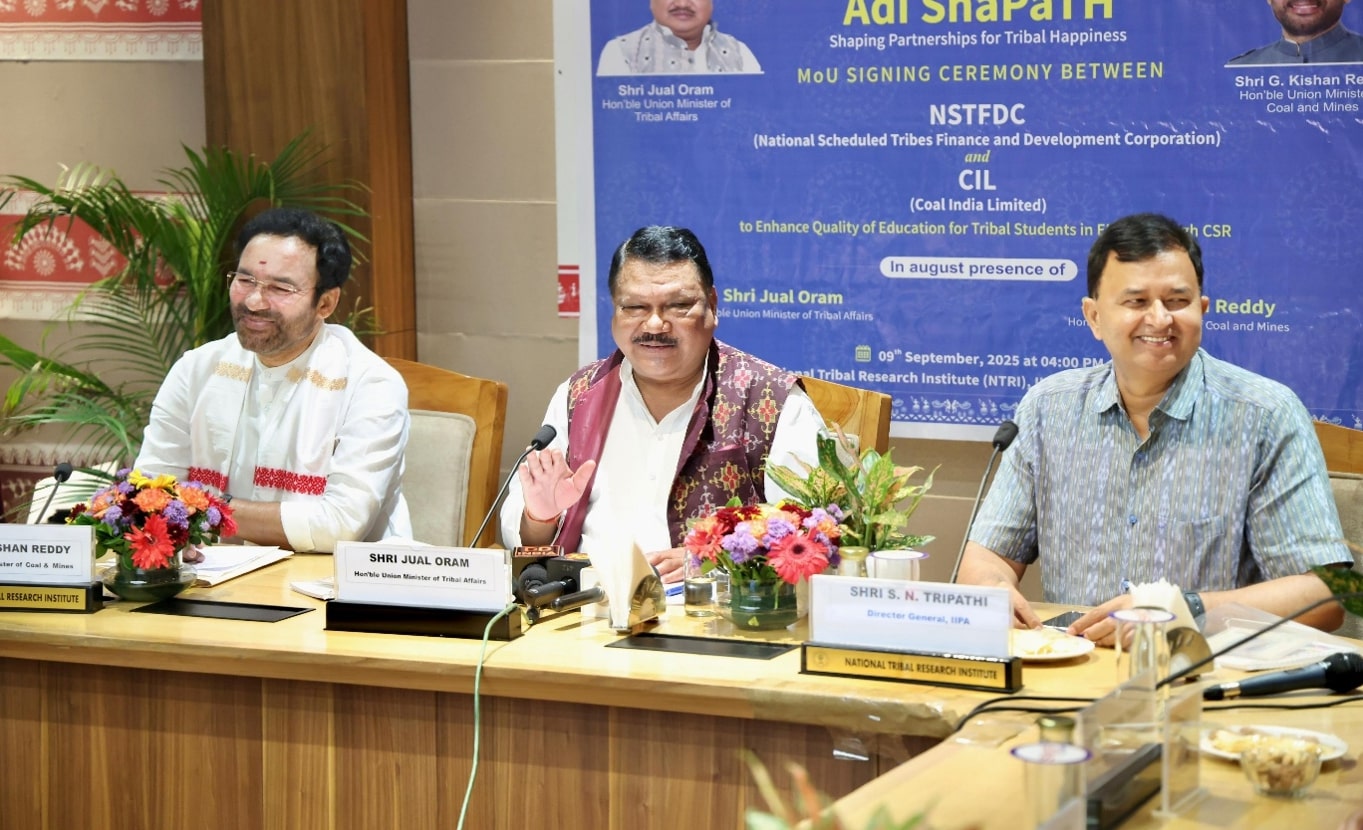In a landmark move towards strengthening tribal education, the Ministry of Tribal Affairs and Coal India Limited (CIL) have partnered to enhance infrastructure and build capacity in 76 Eklavya Model Residential Schools (EMRS) across Chhattisgarh, Jharkhand, Madhya Pradesh, and Odisha.
A Memorandum of Understanding (MoU) was signed today between CIL and the National Scheduled Tribes Finance and Development Corporation (NSTFDC), a Section 8 company under the Ministry of Tribal Affairs. The signing ceremony took place in the presence of Shri Jual Oram, Union Minister of Tribal Affairs, and Shri G. Kishan Reddy, Union Minister of Coal & Mines.
Currently, 479 EMRS are operational nationwide, offering quality education, nutrition, healthcare, and holistic development for Scheduled Tribe (ST) children. As a flagship initiative of the Ministry, EMRS are designed to empower tribal youth with access to higher education and sustainable employment opportunities.
Recognising the importance of Corporate Social Responsibility (CSR) in supporting government efforts, CIL has allocated ₹10 crore for this project. The collaboration will provide:
- 1,200 computers with UPS units
- 110 tablets for digital learning
- 420 sanitary pad vending machines and 420 incinerators
- Career counselling and mentorship for over 6,200 students in Classes 10 & 12
The project will be implemented by NSTFDC in a structured, time-bound manner.
Speaking at the event, Shri Jual Oram welcomed the initiative, expressing confidence that more companies will extend CSR support for tribal education. Shri G. Kishan Reddy highlighted that CIL’s CSR focus—education, healthcare, women’s empowerment, livelihood promotion, and rural development—would achieve greater impact through this collaboration.
Key Objectives of the Initiative:
- Bridging the digital divide through computer labs and STEM education.
- Promoting menstrual health and hygiene to enhance participation and performance of girl students.
- Strengthening career counselling and mentorship to bring tribal students at par with their urban counterparts.
Overall, the initiative is expected to benefit over 30,000 tribal students, marking a significant step towards inclusive, technology-driven, and holistic education for India’s tribal communities.



